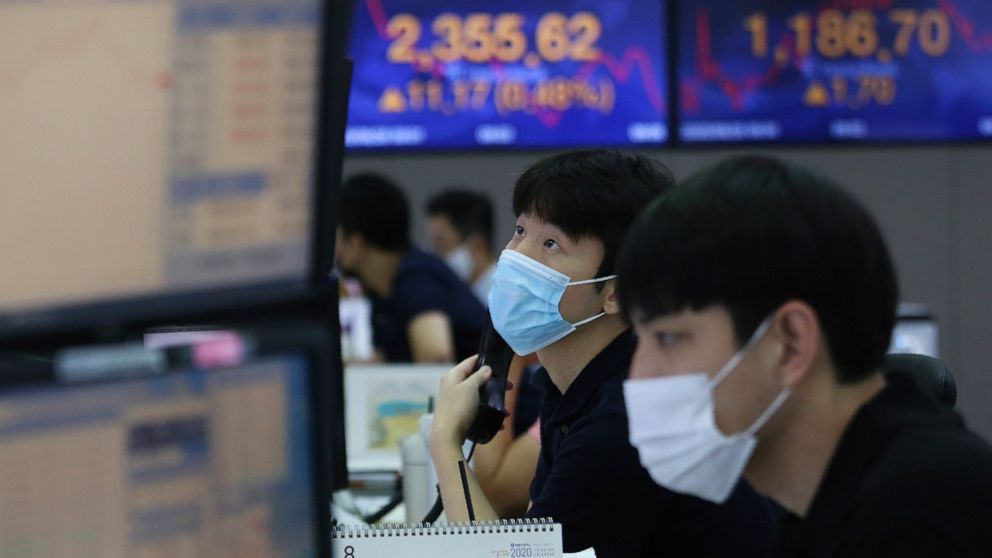Markets mixed after Fed chair says low rates to persist
World markets are mostly higher after the Federal Reserve chair said the U.S. central bank will keep its easy money policy even if inflation hits its 2% target
By
ELAINE KURTENBACH AP Business Writer
August 28, 2020, 9:51 AM
3 min read
World markets were mostly higher Friday after the Federal Reserve chair said the U.S. central bank will keep its easy money policy even if inflation hits its 2% target.
Shares in Japan retreated after Prime Minister Shinzo Abe said he is resigning due to health problems. The Nikkei 225 index lost 1.4%, falling to 22,882.65, though no major changes in policy are likely.
The hoped for change in the Fed’s strategy is important for markets that have been rescued by central banks slashing short-term interest rates and buying all kinds of bonds to help weather the coronavirus pandemic.
Germany’s DAX edged 0.2% lower, to 13,070.04 while the CAC 40 in Paris ticked less than 0.1% higher, to 5,017.08. Britain’s FTSE 100 gained 0.2% to 6,014.23. U.S. futures were higher, with the S&P 500 contract up 0.4% and the contract for the Dow industrials 0.5% higher.
Overnight, the S&P 500 ticked 0.2% higher, moving further into record territory and closing at 3,484.55, after Federal Reserve chair Jerome Powell said in a speech that the U.S. central bank might keep interest rates low to help prop up the pandemic ravaged economy even if inflation rises above its target level of 2%.
That strategy takes it down a path already followed by European countries and by Japan, where interest rates have stayed near or even below zero for most of the past decade, seeking to spur inflation and entice companies and consumers to spend more.
“With the adoption of allowing inflation to overshoot their target, the Fed is slowly becoming the BOJ,” Edward Moya of Oanda said in a commentary, referring to the Bank of Japan. “The Fed did not give any hints on how they will achieve inflation and that is why no one is buying that it will happen anytime soon.”
Japan, the world’s third largest economy, has yet to see inflation hit the 2% target initially set by its governor, Haruhiko Kuroda, in 2013. On Friday the government reported that the consumer price index rose 0.3% in July, the down from 0.6% the month before.
Stock prices have held steady, though, even as the economy dipped into recession late last year.
Abe stepped down from a brief earlier term as prime minister in 2007, also for health reasons. He recently became Japan’s longest continuously serving prime minister.
Elsewhere in Asia, Hong Kong’s Hang Seng climbed 0.6% to 25,422.06. The Kospi in Seoul added 0.4% to 2,353.80. Sydney’s S&P/ASX 200 fell 0.9% to 6,073.80, while the Shanghai Composite index jumped 1.6% to 3,403.81.
Benchmark U.S. crude oil lost 16 cents to $42.87 per barrel in electronic trading on the New York Mercantile Exchange. It fell 35 cents to settle at $43.04 per barrel on Thursday. Brent crude, the international standard, gave up 15 cents to $45.43 per barrel.
In currency dealings, the U.S. dollar bought 105.74 Japanese yen, down from 106.57 yen late Thursday. The euro rose to $1.1918 from $1.1823.
![]()


